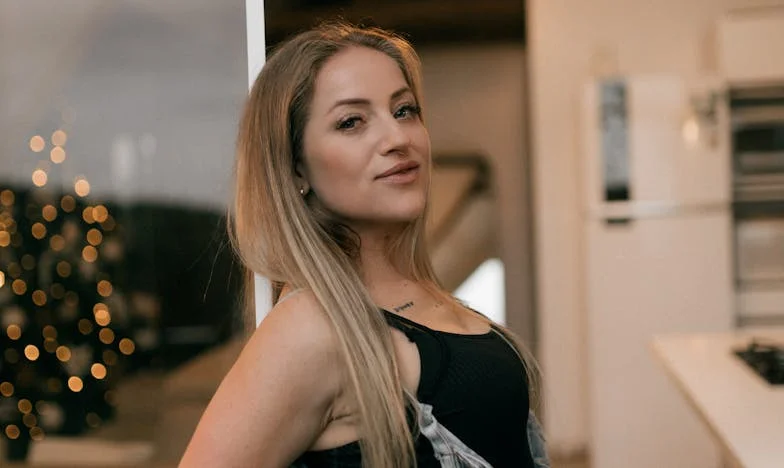Behind the White Picket Fence
The front door clicked shut behind me, echoing in the silent house. My heart hammered as I toed off the high heels that had been killing me all night. I winced—blisters again, just like last week. But pain in my feet was nothing compared to the heaviness squeezing my chest.
“You’re home early, Em. Couldn’t stand the party? Or did you just need a break from pretending?” My mother’s voice came from the darkness of the living room. I hadn’t even noticed her silhouette on the couch, wrapped in her old cardigan, the TV flickering on mute.
I fought the urge to snap back. “I thought you’d be asleep,” I said, trying to sound casual. But my hands were shaking as I hung up my coat. I caught my reflection in the hallway mirror: mascara smudged, smile lines etched deep. Thirty-eight, and I looked older tonight.
Mom stood, crossing her arms. “You know, Emily, you used to love going out. Now you come home from every event like you’ve run a marathon.”
“It’s just…” I started, then shrugged. The lie tasted bitter. “I’m tired, Mom.”
“Tired of what? Your perfect life?” Her words stung. I bit my lip, not trusting myself to answer. Upstairs, I could hear the faint hum of my husband’s snoring and the subtle creak of my daughter Lily turning over in bed. The house—our four-bedroom in Maple Grove, with its white siding and red door—looked like every other on the block, but inside it felt like a cage.
I tiptoed to the kitchen, pouring myself a glass of wine, watching the pale moonlight spill over the granite countertops. Mom followed, her footsteps soft but insistent. “Emily, you can’t keep going like this.”
“What do you want me to say? That I’m unhappy? That I hate my life?” My voice trembled, louder than I meant. “Because I don’t. I have everything I ever wanted.”
She gave me a look—half pity, half challenge. “You have everything you were told to want. There’s a difference.”
That night, I barely slept. The next morning, the facade snapped back in place. Packing lunches, racing against the school bus, waving to neighbors as I shoved the trash bins to the curb. My husband, Mark, barely glanced up from his phone as he sipped his coffee. “Big meeting today?” he asked, not really listening.
“Yeah. And Lily has soccer after school.”
“Good, good,” he said, scrolling. A pause. “You okay? You seem… off.”
I pasted on a smile. “Just tired.”
He nodded, already lost in his emails. I wanted to scream: Look at me! See me! But I just rinsed out my mug and started the day.
But the truth was, cracks were spidering through the life I’d built. I forgot Lily’s permission slip for the field trip. I burned dinner twice in one week. And at night, I stood in the shower, sobbing so quietly no one would hear.
It all came to a head on a Thursday. Lily came home with a note from her teacher. “Mom, Miss Parker says you missed the parent-teacher meeting. Again.” She was trying to sound casual, but I saw the disappointment in her eyes.
“I’m so sorry, honey. Work ran late.”
She shrugged, but her voice was small. “It’s okay. Dad said you were busy.”
Mark was waiting in the living room, arms folded. “Emily, we need to talk.”
I braced myself. “About what?”
“About you. About us. You’re not here, Em. Not really. You forget things. You walk around like a ghost.”
“I’m doing the best I can!” I snapped, tears stinging my eyes. “It’s not enough for you?”
He shook his head. “That’s not what I said. But something’s wrong. You need help.”
That night, after the kids were asleep, I sat on the back porch, knees hugged to my chest. My mother joined me, wrapping a blanket around my shoulders. “Emily, you don’t have to be perfect. You don’t have to keep pretending.”
I broke down, sobbing. “I don’t know who I am anymore, Mom. I’m failing at everything.”
She squeezed my hand. “Maybe it’s time you stop living for everyone else. Figure out what you want.”
The next day, I called a therapist. The first session, I barely spoke, just cried. But it was a start. Weeks passed. I started writing again—short stories, journal entries, scraps of poetry I hid in my bedside drawer. I told Mark I needed space, and for the first time, he really listened. We argued, yes, but we also talked. Really talked.
One Saturday, I packed a picnic and took Lily to the park, just us. She climbed onto my lap and whispered, “I miss you, Mom.”
“I’m here now, baby,” I promised, holding her tight. And for the first time in years, I felt like I meant it.
Things aren’t perfect. I still mess up. Mark and I are seeing a counselor. Some days, it all feels too hard. But I’m learning to breathe, to ask for what I need, to let go of what I can’t control.
Now, I stand at the window, watching the morning light spill over our little street. The white picket fence is still there, but I know now: it doesn’t have to be a cage. Maybe it’s just a boundary. Maybe, with time, I’ll find my way to the other side.
I wonder: How many of us are trapped behind fences we built ourselves? And how many are brave enough to open the gate?
